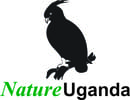Engaging Site-based Communities in Research and Conservation: The Locally-based Monitoring Initiative

In an effort to preserve biodiversity and foster environmental stewardship, NatureUganda and Makerere University, with funding from IHE Delft, have launched a Locally-based Monitoring (LbM) program in selected wetlands in Uganda. This citizen science initiative empowers local community members to actively participate in biodiversity research and conservation efforts, creating a model for sustainable environmental management.
Lubigi Wetland, located on the outskirts of Kampala, is one of Uganda’s most critical ecosystems. It serves as a vital habitat for numerous plant and animal species, acts as a natural water filtration system, and provides essential ecosystem services for the local communities. However, like many wetlands worldwide, Lubigi faces significant threats from urbanization, pollution, and climate change. Protecting this wetland is critical not only for biodiversity conservation but also for maintaining the ecosystem services and supporting the livelihoods of the people who depend on it.
The LbM program is a participatory approach that involves training local community members to monitor and document biodiversity within a site. This initiative leverages the unique knowledge and insights of the local population, ensuring that conservation efforts are grounded in the realities of the area. Lubigi wetland is one area where LbM is being piloted.
Eight local community members, including two women, were selected for the program with the support of local leaders. This gender-inclusive approach recognizes the importance of diverse perspectives in conservation initiatives. Participants underwent comprehensive training on critical topics such as identification of key species, wetland conservation, the significance of wetlands, and the need to preserve these vital ecosystems. They were also guided in selecting indicator species to monitor, providing essential data on the wetland’s health. This data will then be analyzed to identify trends, assess the health of the ecosystem, and inform conservation strategies.
The monitoring program focuses on five major biodiversity groups in the sites selected: birds, mammals, reptiles and amphibians, insects, and plants. To ensure effective monitoring, participants developed a data collection tool including species names in both English and the local language. This approach facilitates clarity and ease of use for all team members, and leverages indigenous knowledge.
To ensure the monitors were well-prepared, NatureUganda facilitated a practical session to test the data collection tools. This hands-on practice was critical to fine-tune the tool and assess its performance under real-field conditions. During the practical session, the team selected a 2km transect along Lubigi wetland edge for monitoring, the areas was strategically chosen to provide a comprehensive overview of the wetland’s condition and biodiversity. The practical session was instrumental in ensuring that the monitors were well-prepared to conduct the monitoring activities effectively.
The LbM initiative offers numerous benefits, both for the local community and the broader conservation efforts. By involving those who are most familiar with the wetland custodians, the program ensures that conservation strategies are locally relevant and more likely to succeed. The continuous monitoring and data collection will help in tracking changes over time, enabling timely interventions to mitigate adverse impacts on the wetland.
By harnessing the knowledge and enthusiasm of local communities, the LbM approach holds great promise for protecting vital ecosystems and ensuring a sustainable future for generations to come.
Related Posts
Recent Posts
Safeguarding Uganda’s Only Breeding Population of Rüppell’s Vultures
Culture, Traditional Knowledge and Uganda’s Wetlands: Insights from the World Wetlands Day 2026 Public Dialogue
Annual Planning Meeting Sets the Course for Conservation Action in 2026
All Categories
- capacity building (1)
- Conservation and Development (36)
- Eco-tourism (6)
- Education and Awareness (15)
- Forests (13)
- Gorvenance (2)
- Habitats (14)
- membership (2)
- Nature walk (3)
- People (10)
- Projects (13)
- Public dialogue (10)
- Research and Monitoring (23)
- Sites (6)
- Species (14)
- Wetlands (17)
- Wildlife (10)




